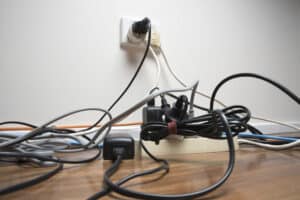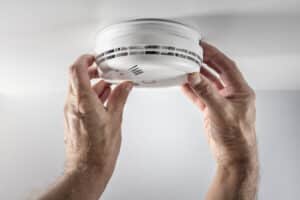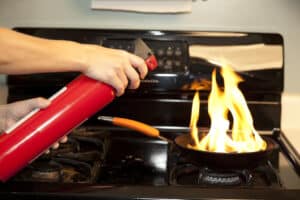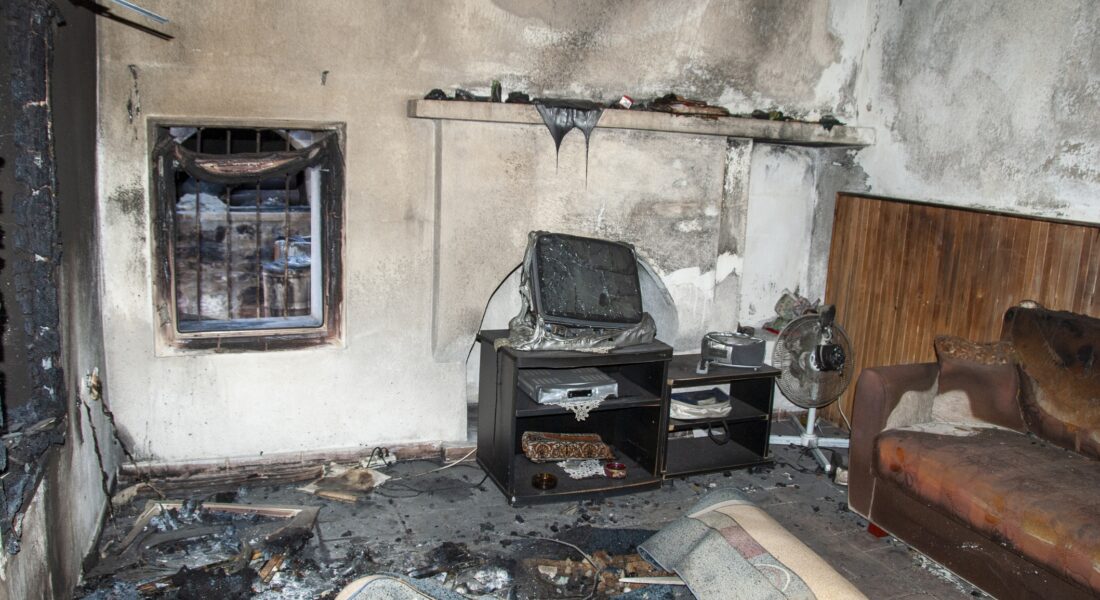Early in the year is when you should think of house safety. Evading fire is the most important of all the safety measures. Fires can start in a flash, travel very fast, and cause tremendous damage. They can injure your loved ones, burn your house down, and deprive you of things you hold close to your heart. The good news is that you can easily take steps to lower the risk.
This is a step-by-step guide and it will guide you through how to fireproof your home for the upcoming year. It contains safety tips for indoors, safety tips for outside the house, as well as smart habits that bear great results.
Why Fire Prevention Is Important
A small fire will turn into a massive fire within a couple of seconds. Most fires happen because of regular activities like cooking, heating, or the use of electricity. Prevention is always better than cure. You are saving time, money, and lives by preventing a fire from happening.
Fire safety is not safety, but peace of mind. You can sleep sound tonight knowing that you’ve done all you can to make your home safe.
Causes for House Fires
Prevention starts with knowledge of what causes house fires. Some of the most common causes are:
Accidents in cooking – Not watching food on the stove.
Home heating devices – Space heaters that are too close to combustible materials.
Electric – Frayed cords or overloaded receptacles.
Candles – Burning unattended.
In-home smoking – Lit cigarettes that have not been snuffed out.
Christmas trees – Dry Christmas trees that are likely to catch on fire.
Kitchen Safety
Most home fires start in the kitchen. Make your kitchen safer by adopting these habits:
- Stay in the kitchen when cooking.
- Put towels and paper goods out of range.
- Turn handles in on pots so they won’t be bumped.
- Wipe ovens and stovetops free of greases on a regular basis.
- Use a timer to remind you when the food is done cooking.
In case the fire is in a pan, never use water. Place a lid on top and cut heat.
Winter Heating Safety
Many homeowners use heaters and fireplaces to heat their houses. These devices can be dangerous if not handled carefully.
- Position space heaters at least 3 feet from anything that can burn.
- Never leave a heater operating when leaving the room or going to bed.
- Utilize heaters that have automatic turn-off features.
- Chimney cleaning should be performed before using your fireplace.
- Keep matches and lighters out of children’s reach.
Electrical Safety
Short circuits and over-loaded circuits cause fires. Check your electrical systems every now and then.

- Avoid overloading plugs.
- Replace faulty and worn-out cords.
- Switch off appliances when not in use.
- Avoid keeping cords under rugs or behind furniture.
- Have your wiring checked by a licensed electrician.
Smoke Alarm and Fire Extinguisher
Smoke alarms prevent death by detecting fires early. Fire extinguishers extinguish fires by stifling small fires.
For smoke alarms:
Install fire alarms in every bedroom, in close proximity to sleeping spaces, and on each floor of the home.

- Test the fire alarms on a monthly basis.
- Change batteries at least once a year.
- Change the whole unit every 10 years.
Fire extinguishers:
- Install one in the kitchen, the garage, and at each exit door.
- Learn how to operate it using the PASS method which are Pull, Aim, Squeeze, and Sweep.
- Check pressure gauge monthly
Holiday and Candle Safety
Candles are hot and beautiful but dangerous
- Place candle on stable surfaces
- Away from drapes, paper, and anything that will ignite.
- Blow out when you leave a room
- Have battery operated candles as alternative.
If you do have holiday decorations:
- Water Christmas trees.
- Use light strings that are certified safe.
- Lights off when you sleep or you leave the house.
Outdoor Fire Prevention
Fires do not occur solely indoors. Outdoor spaces also play a part.
- Clear debris from the gutters and around the house of dry leaves and other debris.
- Keep firewood 30 feet or more from the house.
- Keep fire pits and grills away from the house, deck, or branches overhang.
- Learn your local burning regulations.
Create a Fire Escape Plan
Even with prevention, accidents will occur. A fire escape plan gets everyone ready.
How to develop your plan:
- Create a simple floor plan of your home.
- Mark two exits from every room.
- Designate a meeting place outside.
- Rehearse the plan with household members semi-annually.
- Teach children to crawl low in smoke and never go back inside for things.
Habits for a Fire-Safe Year
Prevention is habit. Simple habits render your home safe:

- Unplug appliances when not in use.
- Keep flammable liquids in approved containers.
- Do not smoke inside the home.
- Check extension cords on a regular basis.
- Teach children about fire safety.
What to Do in Case of a Fire
- If there is fire, remain calm.
- Get everyone out together.
- Phone emergency services immediately.
- Only fight a small fire if you know how to use an extinguisher.
- Never try to re-enter a burning building.
New Year Fire Safety Checklist
A useful checklist to begin your year:
- Check all smoke alarms.
- Test fire extinguishers.
- Read and review your escape plan.
- Test electric cords.
- Clean appliances in the kitchen.
- Clean chimneys.
- Secure lighters and matches.
Conclusion
Fire safety must be a constant aspect of your home maintenance, and not an annual event. New Year’s is a wonderful time to test alarms, clean appliances, and examine your family’s safety habits. By establishing fire safety as a habit, you can ensure your home and family’s protection.
It is an easy task, but the impact is monumental. A fire-safe home is a home in heaven. Start this year by making a vow to fire-proof your family, and make it your tradition every following year




